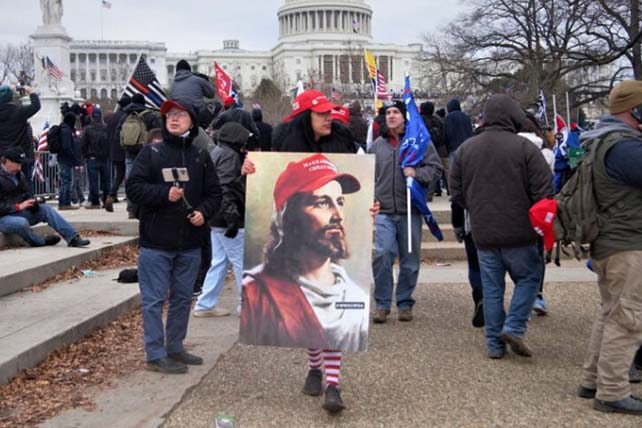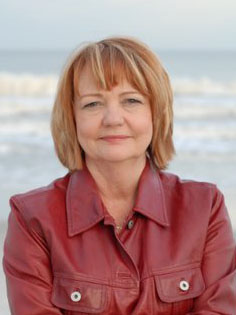Taylor said that existing research into Christian nationalism is concerned with beliefs about the history and identity of the United States, but it misses the idea that “Christians should be privileged in society and should exert a coercive effect on society.”
“I think a lot of times people are trying to say, ‘America was founded with Christian values and these things are embedded within the essence of America,’” he said. “But it doesn’t say much about policy.”
Sarah Posner, a journalist and author of “Unholy: Why White Evangelicals Worship at the Altar of Donald Trump,” recalled seeing Christian nationalist themes in 2011, at the Response, a God and Country prayer rally organized by then-presidential candidate Rick Perry. “It was definitely ‘we need to take back America,’” she said.
But before the Trump era, that meant using democratic means. Since 2020, Posner said, the focus has been on rejecting the results of elections. “Before Trump, no one had permission to stage a coup.”
She said that the arguments over specific definitions of Christian nationalism can overshadow the movement’s main focus, which is power.
“Christian nationalism is not a pejorative. It is a description,” she said. “They have said that America is a Christian nation. How much clearer do they have to be?”
Julie Ingersoll. Photo via Twitter
Julie Ingersoll, professor of religious studies and author of “Building God’s Kingdom: Inside the World of Christian Reconstruction,” pointed out that Christian nationalists don’t necessarily share a single theology. Influential religious figures such as R.J. Rushdoony and other conservative social and political activists known as “reconstructionists” have long believed that Christians should have dominion over the world. But their theology is different from that of charismatics like Julie Green.
“It’s fluid and messy,” she said. “People want to make it neat and clean and divide these groups up and put them into little boxes with labels on them. Because that is more comfortable.”
But Ingersoll said religious differences between Christian nationalism and the broader evangelical movement are less important because, she argues, both are as much political as they are theological.
Still, she stresses that when Christian nationalists say that their candidate or party was chosen by God to win, they really mean it. And they may not be willing to let democracy get in the way of God’s will.
“The niceties of democracy fall by the wayside when you are on God’s side fighting Satan.”
This story was reported with support from the Stiefel Freethought Foundation.
This article originally appeared here.


